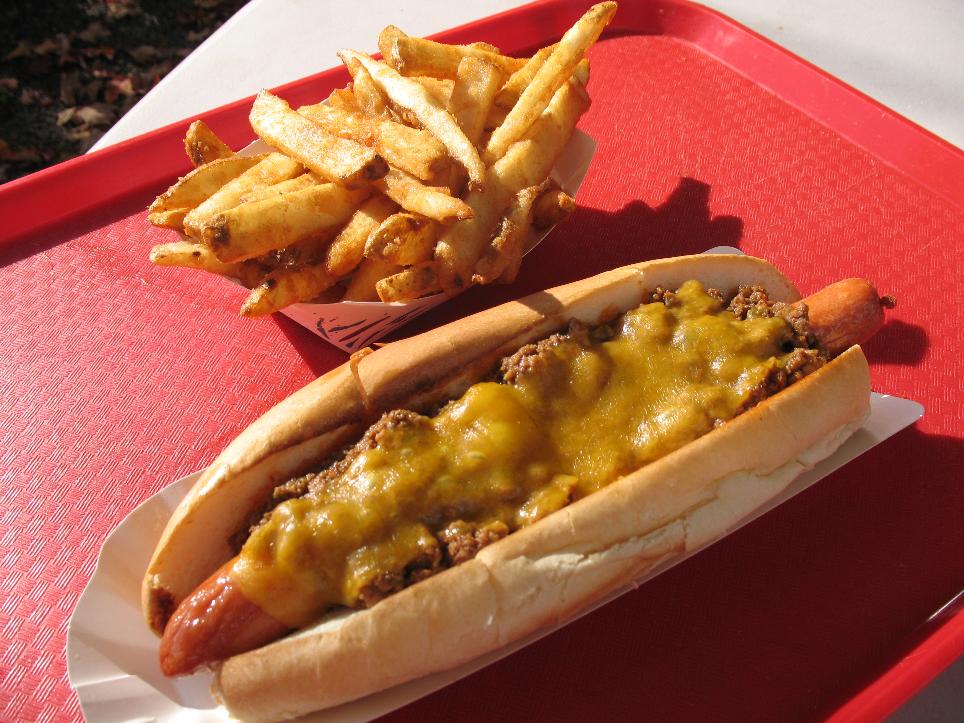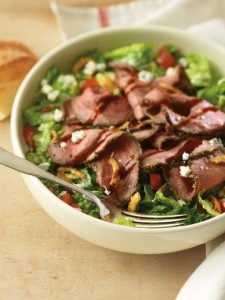Artificial Sweeteners Make You Fat
Late last year, I’m sitting in an office building with the agent of an NFL Player and the player himself. We were working together to help the player lose weight.
While there was some initial success, he hit a little plateau. His agent asked the player "what are you drinking?"
"Crystal Light, diet soda, and water only. Chris said no liquid calories."
And his agent blew through the roof — "NO WONDER HE ISN’T LOSING" he said to me, "I CAN’T BELIEVE YOU TOLD HIM HE CAN USE ARTIFICIAL SWEETENERS. Didn’t you see the report — artificial sweeteners cause you to GAIN weight more than regular sugar!!!"
And that’s when it got a little awkward in the room.
But that’s how the meeting started. And I’m now put on defense to defend my position…in front of the player himself who I did in fact tell "no liquid calories" because soft drinks and slurpees were a regular addition to the daily diet.
In another post I talked about if you should use Stevia. And just last week I talked about the new study suggesting artificial sweeteners cause heart disease. But now we’re shifting our focus to cover some more specifics about sweeteners — and there are a bunch, like Acesulfame potassium (Ace-K), Sucralose, Saccharin, and Aspartame.
Are they a better option than calorie containing sugar options when trying to lose weight and burn belly fat?
Let’s delve into them a bit and discuss some of the realities and myths with calorie free sweeteners.
Each of the artificial sweeteners has an "acceptable daily intake" (ADI) — meaning according to the FDA, you should not consume MORE than the amounts listed below per day.
- Aspartame (Nutrasweet, Equal) = 18-19 cans of diet cola
- Saccharin (Sweet ‘N Low) = 9 to 12 packets
- Acesulfame K (Sunett, Sweet One) = 30-32 cans diet lemon-lime soda
- Sucralose (Splenda) = 6 cans diet cola
Fair enough? Now depending on who you talk to, or what you read, you’ll hear all different opinions — "I only use sucralose, because xxxx" or "stevia is natural, so I use that…"
If you look at the values above, you may notice that according to the ADIs, the max for Splenda is just 6 cans of diet cola/day, whereas Equal is 18-19 cans. Does that mean Splenda is more of a concern than Equal? It might.
But as a side note, if you’re drinking THAT many diet colas/day, your diet needs an overhaul as there are absolutely zero positive qualities to diet colas (or any diet soda for that matter).
Let’s cover a few of these in more detail.
Sucralose (Splenda):
While this one has received safety approval from the FDA, it’s surely not without controversy. Picking sides with this is like jumping in to the Health Care Reform debate!
But I’m ready to go for it.
First, the upside of Sucralose:
- it has virtually no aftertaste
- it’s stable when heated so you can cook and bake with it
- it’s stable at different acidities (pHs) so it can be added to things like lemon juice without affecting its sweetness
- it has a proven track record of safety in many research studies.
Cons:
- anecdotally (meaning personal stories) have tied intake to migraine headaches
- may affect healthy bacteria in the gut, according to animal data
- it may cause weight gain?
This last one is a bit more controversial. In a nutshell, one study using rats fed them different quantities of sucralose. At the end of the 24 week study, the rats consuming sucralose gained weight compared to the ones that didn’t take any in. And that’s the study this players agent was referring to.
Weird. Zero calories, how can it cause dangerous belly fat to creep up on us?
I will say at this time I’m not impressed with the data showing artificial sweeteners cause us to gain belly fat … I clearly need to see more research to support this theory. The thought was that while artificial sweeteners themselves don’t have calories, they "trick" the body into craving more sweet foods…
…voila, belly fat and overall weight gain is through the roof.
It’s correlation data, but if I remember anything from statistics, it’s that correlation doesn’t mean causation. In a nutshell, the correlation that those who used diet soda weighed more doesn’t mean the diet soda itself caused them to gain weight. More research clearly needs to expore this. Keep in mind, also, that the doses used in this particular study were very high if we tried to extrapolate these findings to humans. At this point I just don’t buy into that conclusions of this data and am surely calling for more. That’s what I said to this players agent.
Again, another red flag for me here is that the "maximum" recommendation is 6 cans of diet cola — for some, that’s a ton, but for others, that’s breakfast. Regulate your intake!
By the way, the agent and I never did come to an agreement — I’m still 100% confident that to have a person switch from 1-2L of regular soda each day (what this player drank) to diet soda is a huge positive step. Perfect? Nope. Better. Absolutely.
Aspartame (Nutrasweet, Equal):
You’ve seen the little pink packets … pink packets of poison, according to some. Like the others, this has the stamp of approval from the FDA. But opponents of this suggest it causes migraines, causes cancer,brain tumors, and evil belly fat.
Like the others, the research is mixed — some studies show a negative effect, others show a positive effect.
I hate to give the "more research is necessary" answer, but, well, it’s the best answer to give.
I talked about my feelings on the weight gain and artificial sweeteners with sucralose.
As for cancer — it’s a hard one to pin down. These data are all done in animals, usually given very high doses, to see what happens.
For some reason the review boards look very unfavorably at loading up humans with artificial sweeteners and seeing if they cause cancer (please read that with the intended sarcasm); therefore, we’re reliant on animal data. But even if there is that chance, that concerns me … stamp of approval or not!
Like I mentioned in another blog about sugar and high fructose corn syrup, I don’t like the idea of artificial … I don’t want artificial ingredients in my body and try to limit them as much as possible. I do that by knowing what I’m eating, being able to pronounce all ingredients, and eating foods as close to the earth as possible.
With that said, I AM supportive of making the transition to calorie free drinks if someone is a regular soft drink (or juice, or sweetened tea) drinker …
But as a whole, artificial sweeteners aren’t a favorite.
We also have yet to find one without an off flavor. Call us crazy, but we want to eat a food that, well, tastes like food — not have some bitter aftertaste that’s CLOSE to being real, but not quite there.
I’d personally rather have a REAL sweetener, infrequently. Moderation. That’s a very unsexy word in marketing and the media, but it’s true.
You want a cookie?
Eat a cookie — occasionally.
Is a fat free, sugar free, calorie free flavored chocolate chunk piece of cardboard REALLY going to help out your desire for a cookie?
Not a chance.
Eat the real thing, on occasion, then get over it. Fair enough?
Eating real foods is what will help you live as healthfully as possible, burn belly fat, and look and feel great!
-
Diet Str egies: Foods For Sex
The article you are about to read is based on the simple notion that (
-
6 No-Fail Ways to Hit Your Weight-Loss Goal
An overweight chef is like a dentist with a beautiful smile or a spin
-
Try This 7-Second Motivation Trick
Remember your moms birthday—it could help shrink your gut. Mapping out
-
Avoid These Belly-Bulging Foods
Just in time for summer, researchers are studying the best way to sto
-
Trends in the Natural Products Industry
A few weeks ago I attended a conference the Natural Products Expo, the
-
7 Reasons Youre Still Hungry—Even After You Just Ate!
Do you sometimes feel ravenous, even though you just polished off a ta
- DON'T MISS
- Holiday Diet Strategies
- Diet Strategies: Fat Reminder
- The Snacking Trick You Fall For
- 4 Easy Lunch Ideas to Lose Weight
- Pig-Out Pitfalls
- Belly Off: Running Weight Loss Success Story
- Avoid These Belly-Bulging Foods
- HFCS More Dangerous Than Table Sugar!
- Your Cravings: SOLVED
- 6 Exercises to Lose Your Love Handles




